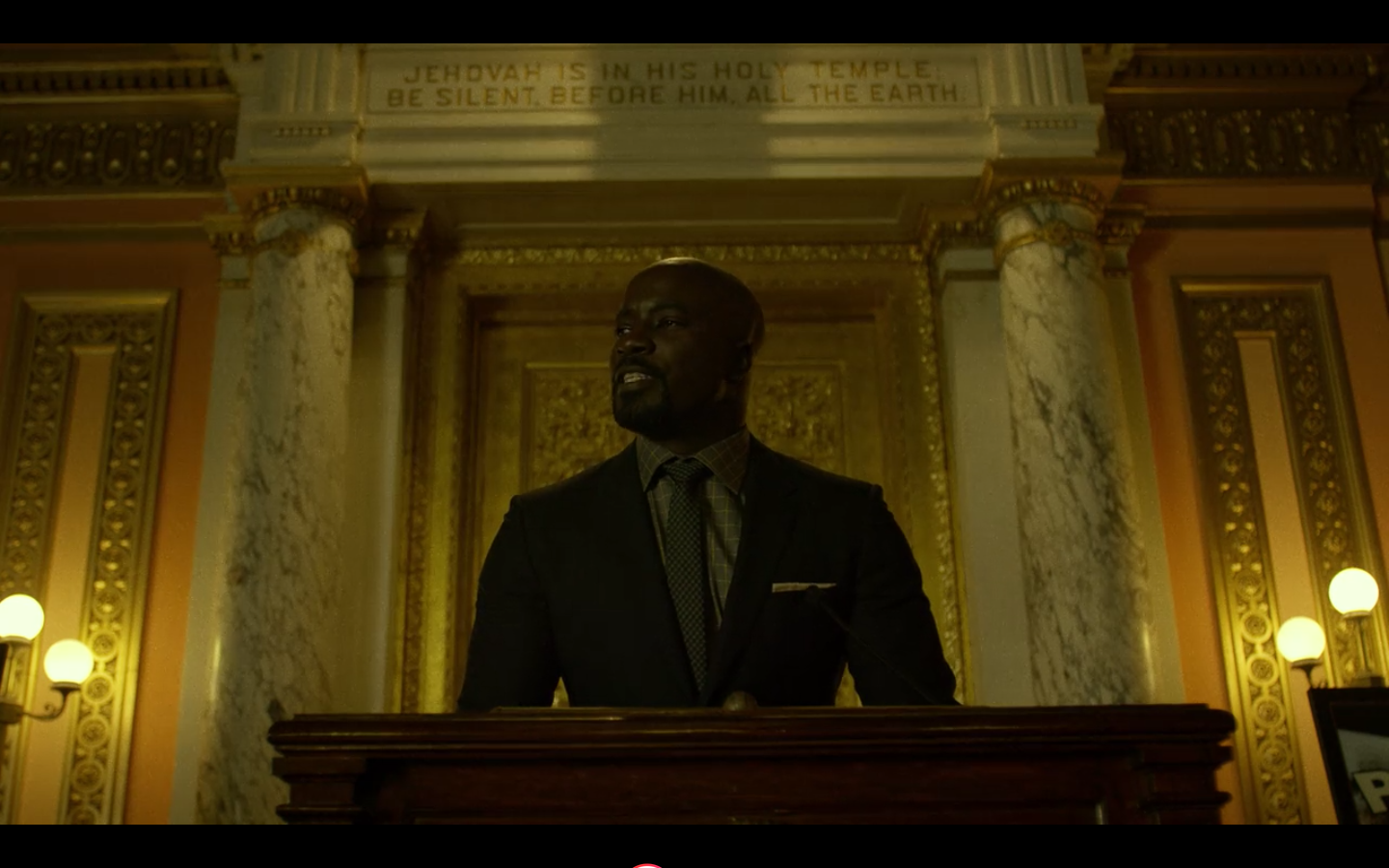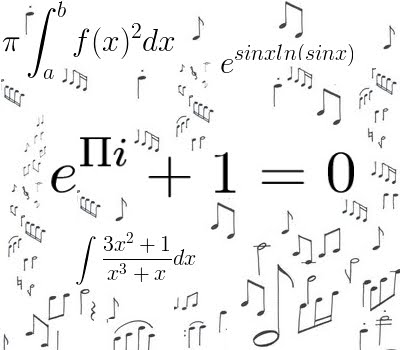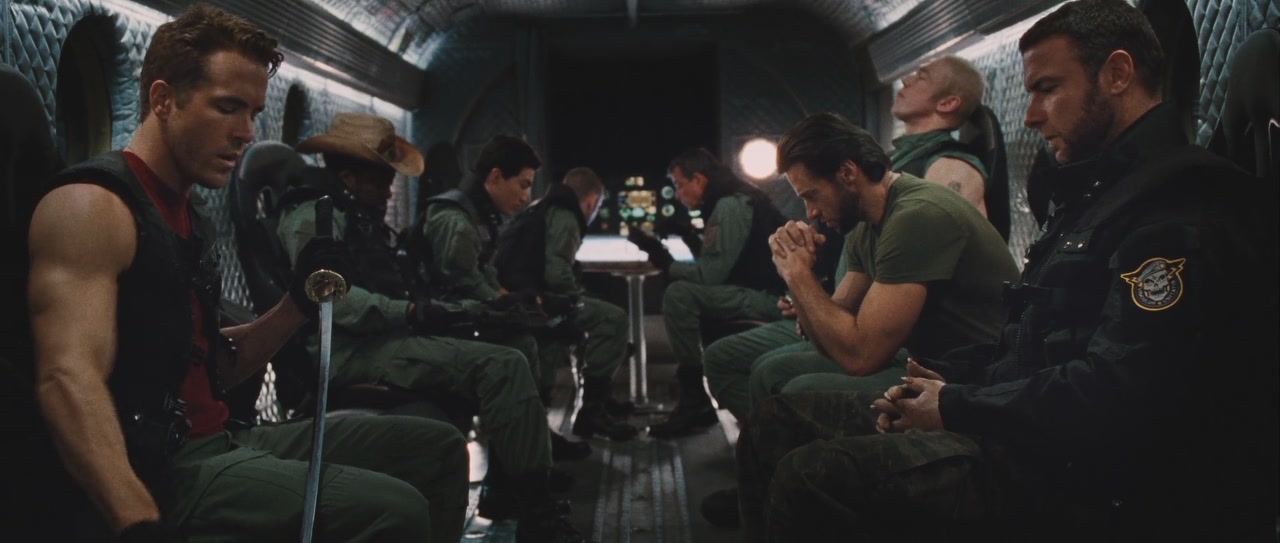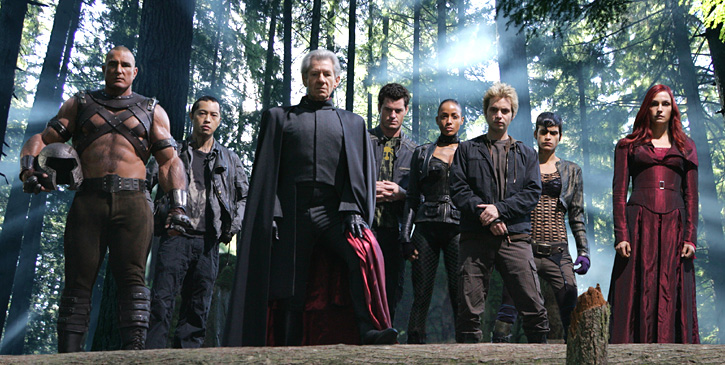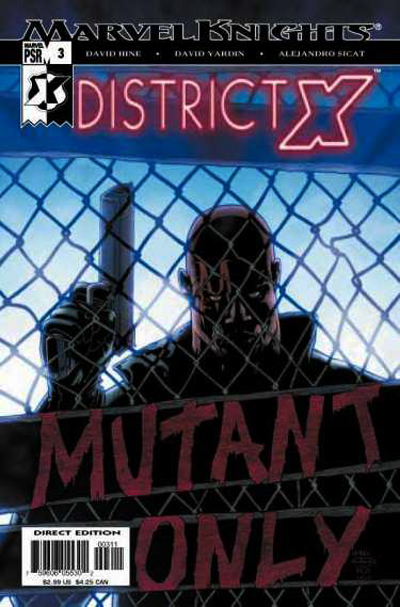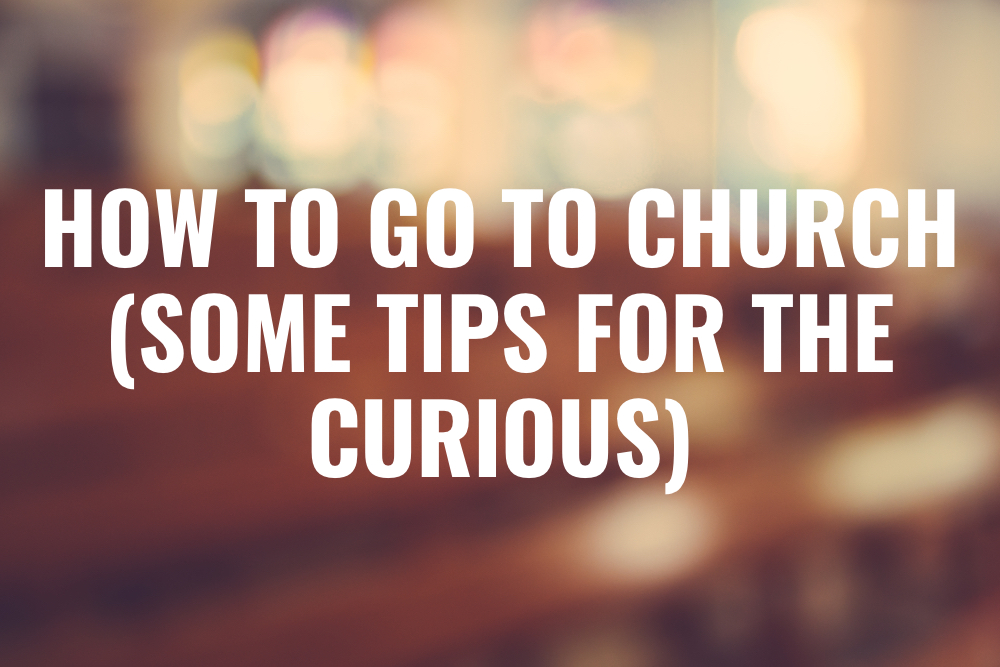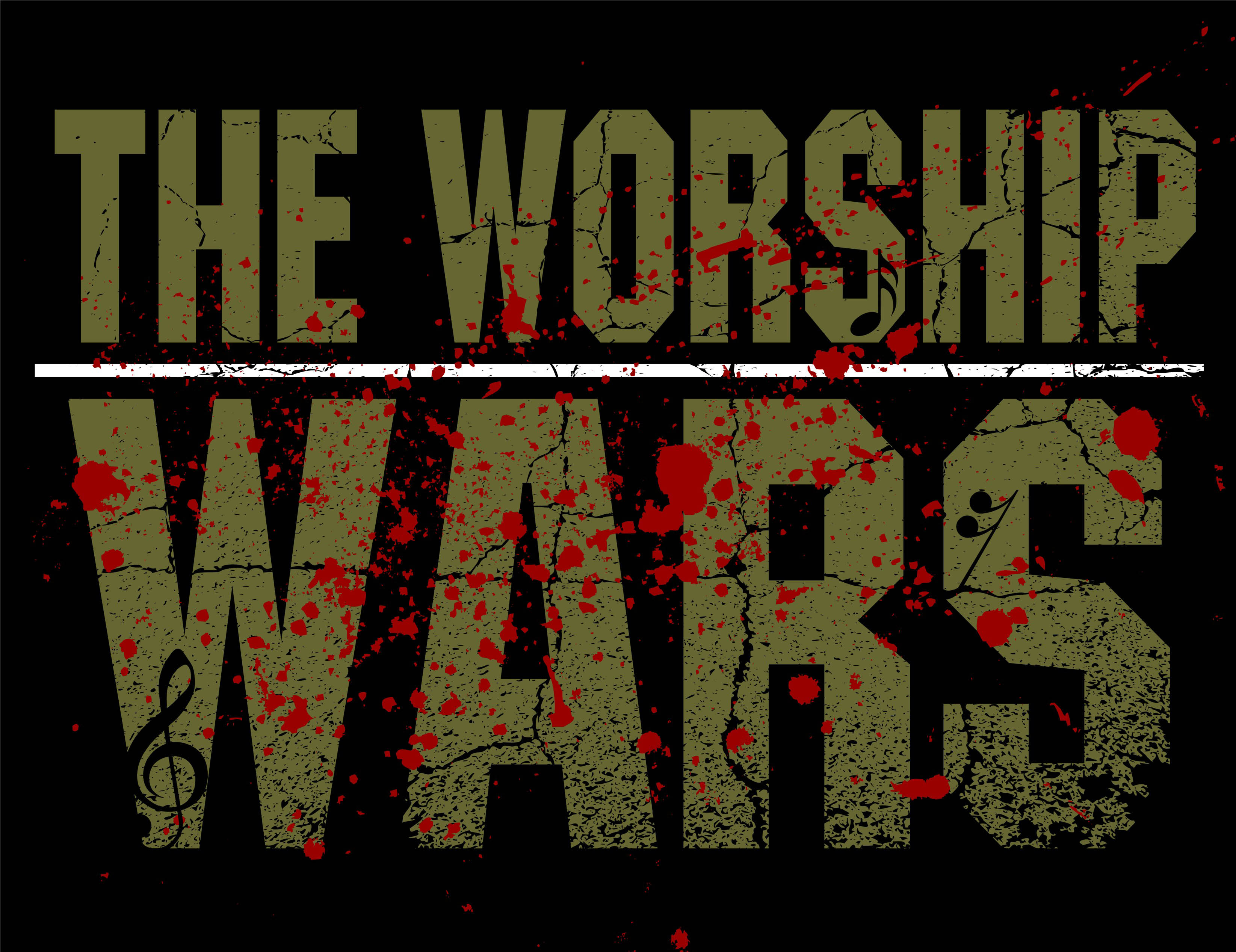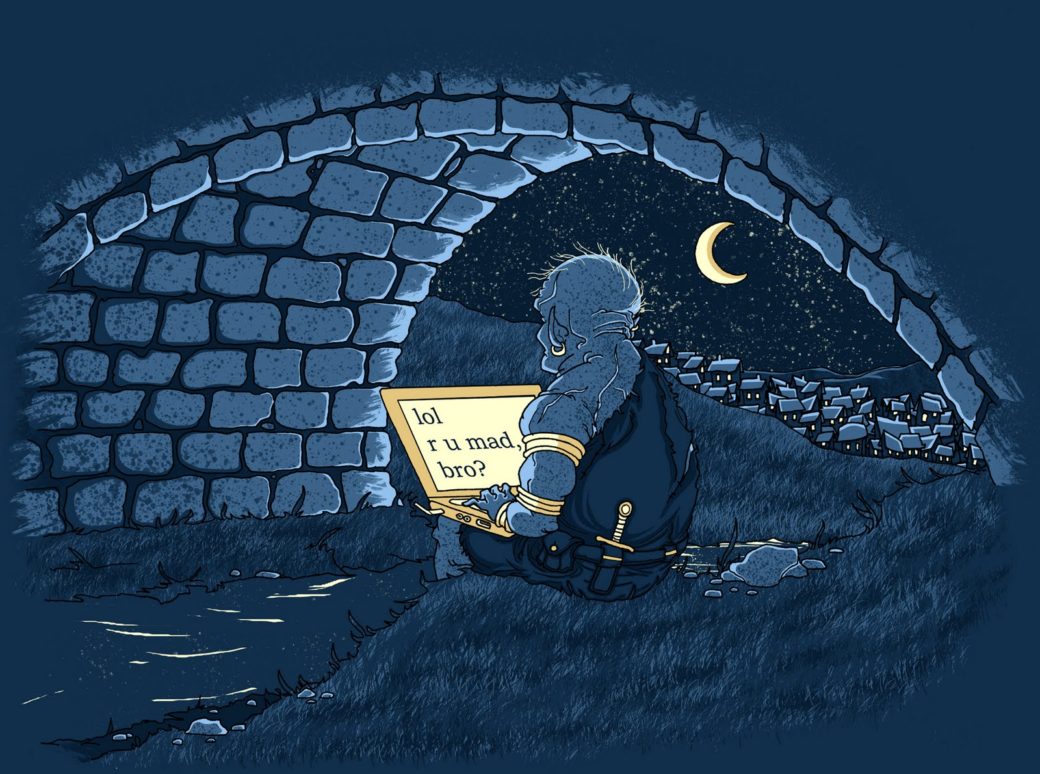“And an outstanding reason for choosing some sort of god or spiritual-type thing to worship – be it JC or Allah, be it Yahweh or the Wiccan mother-goddess or the Four Noble Truths or some infrangible set of ethical principles – is that pretty much anything else you worship will eat you alive.” — David Foster Wallace, This Is Water
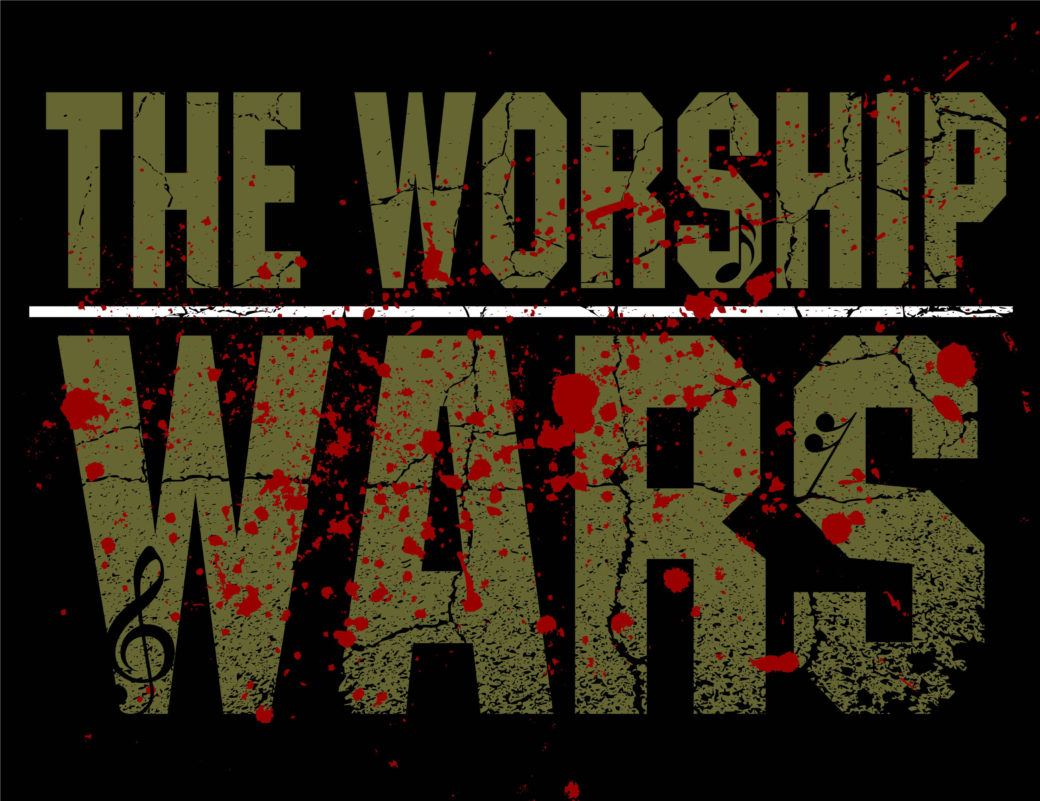
Last week news broke that two 12 year old boys had sexually assaulted a six year old girl in a bathroom in their school. Twice.
Just contemplate that for a moment. This is awful.
Awful. There’d be societies in the ancient world wearing sackcloth and ashes over that sort of behaviour (and others where that sort of behaviour would be a clear symptom of a huge societal problem — there are a couple of stories with echoes of this in the Bible around the cities of Sodom and Gomorrah and then later in Judges).
What gets us to this point? What is it that teaches children to behave this way? If people are worshippers who build cultures on shared objects of worship (one of the implications of the first two posts in this series), if the actions of people within those cultures reveal our gods; our ultimate stories; then what are we worshipping that produces these actions?
What are we teaching our children?
No parent sets out to tell their kids to act like this, and if the model of human habits being a product of our gods and loves, not just our rational thoughts is true, telling kids not to do this won’t actually stop them; they’ll be much more shaped by what we, as a society are doing and what we’re loving.
This is awful. But it’s not the only story like it… and it’s not just kids…
Consider how far our society has progressed, such that the only service for children who perpetrate sexual assault on other children is oversubscribed; the expert in this story says two causes for this prevalence are the sexual abuse of children (who become perpetrators) and the availability of internet pornography.
Consider that the Washington Post published a piece recently that called pornography a “public health crisis” which pointed out that:
“Because so much porn is free and unfiltered on most digital devices, the average age of first viewing porn is estimated by some researchers to be 11. In the absence of a comprehensive sex-education curriculum in many schools, pornography has become de facto sex education for youth. And what are these children looking at? If you have in your mind’s eye a Playboy centerfold with a naked woman smiling in a cornfield, then think again. While “classy” lad mags like Playboy are dispensing with the soft-core nudes of yesteryear, free and widely available pornography is often violent, degrading and extreme.
In a content analysis of best-selling and most-rented porn films, researchers found that 88 percent of analyzed scenes contained physical aggression: generally spanking, gagging, choking or slapping. Verbal aggression occurred in 49 percent of the scenes, most often in the form of calling a woman “bitch” and “slut.” Men perpetrated 70 percent of the aggressive acts, while women were the targets 94 percent of the time.”
Consider this story from a parent recently that compared the ability to access the fantasy world of pornography to the mystical through-the-wardrobe land of Narnia, but showed the real world, habitual, fruits developed by the modern fantasy story.
Consider this ABC story by Collective Shout’s Melinda Tankard Reist about a published study Don’t Send Me That Pic featuring widespread interviews with Australia’s teenage girls, which (the story) features this quote:
Some girls suffer physical injury from porn-inspired sexual acts, including anal sex. The director of a domestic violence centre on the Gold Coast wrote to me a couple of years ago about the increase in porn-related injuries to girls aged 14 and up, from acts including torture:
“In the past few years we have had a huge increase in intimate partner rape of women from 14 to 80+. The biggest common denominator is consumption of porn by the offender. With offenders not able to differentiate between fantasy and reality, believing women are ‘up for it’ 24/7, ascribing to the myth that ‘no means yes and yes means anal’, oblivious to injuries caused and never ever considering consent. We have seen a huge increase in deprivation of liberty, physical injuries, torture, drugging, filming and sharing footage without consent.”
The Australian Psychological Society estimates that adolescent boys are responsible for around 20% of rapes of adult women and between 30% and 50% of all reported sexual assaults of children. Just last week , Emeritus Professor Freda Briggs argued that online pornography is turning children into copycat sexual predators – acting out on other children what they are seeing in porn.
Note the role ‘fantasy’ — the sort of story of desire, that shapes our imaginations, loves, and actions, plays in this quote. Ask yourself what god or gods we are worshipping as a culture that produces behaviour like this.
It’s horrid.
Pornography: worship gone wrong
This is worship gone wrong. Pornography is a form of worship — an evil counter-form of worship that is claiming the hearts and habits of men and women in our world, and destroying families, and individuals.
In Christian circles, for thousands of years, churches who have sought to raise little worshippers (such is our view of how the desires that centre our humanity operate) have catechised their children; believing that teaching a child how to worship is the key to teaching a child how to live. That, say, the golden rule, works best when you have in view the life and death of the one from whose lips it came, who also called us to love God with all our hearts, and love our neighbours as we love ourselves… then modelled that with a couple of pieces of timber and some horrid spikes on an awful hill outside Jerusalem.
Worship matters. Teaching our kids how to worship matters. And our society is teaching our kids how to worship.
It’s porn doing the teaching. If you want to know what’s catechising our kids… claiming their imaginations… shaping their desires… look no further than what is streaming into their eyes via their smart phones and internet connections. And it’s not just the kids. Is it.
The Wall Street Journal ran a story this week (you may have to google this phrase to get in behind the paywall) from a Jewish Rabbi Shmuley Boteach, and Pamela Anderson (yes, that Pamela Anderson), calling for people to snap out of blindly pursuing satisfaction through pornography (more on their suggested solution later). It contained this observation about the current reality…
“Put another way, we are a guinea-pig generation for an experiment in mass debasement that few of us would have ever consented to, and whose full nefarious impact may not be known for years. How many families will suffer? How many marriages will implode? How many talented men will scrap their most important relationships and careers for a brief onanistic thrill? How many children will propel, warp-speed, into the dark side of adult sexuality by forced exposure to their fathers’ profanations?
The statistics already available are terrifying. According to data provided by the American Psychological Association, porn consumption rates are between 50% and 99% among men and 30% to 86% among women, with the former group often reporting less satisfactory intimate lives with their wives or girlfriends as a result of the consumption. By contrast, many female fans of pornography tend to prefer a less explicit variety, and report that it improves their sexual relationships.
We’re catechising them. Only it’s not the story of the Gospel that’s shaping them. It’s the story of cheap pornography; which leads us to view one another as meat puppets for our own personal sexual gratification.
Pornography is worship.
False worship. But worship.
The god of uninhibited sexual pleasure isn’t a new God — there’s plenty in the Old and New Testaments about sex and idolatry (and the idolatry of sex)… but if you’re looking for an enemy in the war for people’s worship — their loves — and looking for a demonstration of the truth that we are worshippers whose lives are profoundly shaped by our loves and habits, then pornography is it.
Pornography is worship.
Awful. Habit shaping, story changing, insidious, idolatrous, deadly, worship. And it is powerful. It offers a powerfully corrupt vision of the ‘good life’ that many buy into; that the good life is an orgasm brought about no matter the cost. The cheaper for you, and the more expensive for someone else the better. What an awful story to habitually participate yourself into believing.
It’s not old hymns or modern praise songs that are the enemy in the worship wars; it’s not whether we partake in the sacraments daily, weekly, monthly, quarterly, or at all, that we should be putting our energy into when it comes to deciding who and how we worship. It’s insidious gods like the idols behind porn — the worship of one’s own sexual gratification and the pursuit of an orgasm as though that’s our fundamental telos, be it by ourselves in darkness or shame; or in the relationships we destroy in the pursuit of the stories we see played out in pixels. Porn kills. It’s worship. And it so perfectly fits the paradigm described in the first two posts of this series. That we’re worshippers. And what we worship shapes us as we participate in the ‘liturgies’ of whatever ultimate love story we’re living in. Porn offers a terrible ultimate love story, and it’s terribly destructive.
The war for your worship involves your heart, your imagination, and your habits: porn attempts to claim all three
So far in this little series I’ve argued that we are, by nature, worshipping beings; that we bear the image of the object of our worship, and that seeing the worship wars as a civil war — a conflict within the church about how we gather (and the style of music we sing), profoundly misunderstands the real enemy and what’s really at stake in the war that’s raging for who and how all people worship. In this post I’ll explore what I think the major strength of James K.A Smith’s work in his three recent books on this stuff is for those wanting to engage in the worship war and fight on the good side, not the evil side, in the next I’ll make some suggestions about where I think Smith’s answer to his diagnosis goes somewhere I wouldn’t (especially because of a slight difference in what I think ‘worship’ is, and how it relates to Sunday gatherings of Christians).
Smith suggests that as worshipping creatures we are liturgical creatures; and by this he means we’re actually more shaped by our practices than we realise. Our actions aren’t just things that flow out of our beliefs and loves, but shape them. Liturgy, our habits, have the capacity to both form and deform us; to make us more like Jesus, or make us more like our idols.
Porn is worship; and it deforms us. It takes us away from being the people we were made to be, and from worshipping the God we were made to worship. We see this because it leads to destruction; not love.
This insight has a nice little overlap with the discipline of media ecology and a famous maxim about media practices and tools: “we shape our tools, and thereafter they shape us”… Introduce a new piece of technology to an environment, a technology that changes our habits, and not only will we potentially do more with that tool, it will change the way we do things and so change us. Think about someone whose job is to get rid of a concrete slab. A sledgehammer is effective and gives you big arm muscles, a jackhammer is effective and gives you a tough stomach, a remote controlled piece of high powered digging machinery is super effective and you only have to use your thumbs. Holediggers over the ages look very different. We’re shaped by our habits. Now picture the hole digging thing as ‘communicating information’ and think about the changes from pen and ink, to typewriter, to printing press, to internet… This isn’t just true of hole digging and communication — our lives and identities, our loves, who we are and the stories we tell ourselves are profoundly shaped by our habits. What we do doesn’t just reflect who we are; it shapes who we are. We cultivate the type of person we want to become based on our image of the good human life, which is based, in turn, upon the stories we tell ourselves. As Smith puts it:
Liturgies work affectively and aesthetically—they grab hold of our guts through the power of image, story, and metaphor. That’s why the most powerful liturgies are attuned to our embodiment; they speak to our senses; they get under our skin. The way to the heart is through the body, you could say.
“Liturgy,” as I’m using the word, is a shorthand term for those rituals that are loaded with an ultimate Story about who we are and what we’re for. They carry within them a kind of ultimate orientation. — James K.A. Smith, You Are What You Love
Porn makes for terrible, deadly, effective liturgy. It is powerfully wired to do exactly what Smith says liturgy does; but with horrible and destructive results. It tells a terrible story about our bodies, our sexuality, our relationships, our telos, and our humanity. The stakes are high. This is about who you are. And who we are as a society. That’s why it’s legitimate for us to draw causal links between our practices, the virtues they demonstrate to our kids, and the way our kids then behave. If kids are sexually assaulting other kids in the playground there’s something very wrong with how we adults are conscripting their imaginations, their love and their worship. We’re losing the war, as a culture and as the church. Here’s perhaps the tightest summary about the way Smith calls us to observe and participate in the world (and to understand ourselves as participants).
If you are what you love, and your ultimate loves are formed and aimed by your immersion in practices and cultural rituals, then such practices fundamentally shape who you are. At stake here is your very identity, your fundamental allegiances, your core convictions and passions that center both your self-understanding and your way of life. In other words, this contest of cultural practices is a competition for your heart—the center of the human person designed for God, as Augustine reminded us. More precisely, at stake in the formation of your loves is your religious and spiritual identity, which is manifested not only in what you think or what you believe but in what you do—and what those practices do to you…
We become what we worship because what we worship is what we love. As we’ve seen, it’s not a question of whether you worship but what you worship—which is why John Calvin refers to the human heart as an “idol factory.” We can’t not worship because we can’t not love something as ultimate…
Our idolatries, then, are more liturgical than theological. Our most alluring idols are less intellectual inventions and more affective projections—they are the fruit of disordered wants, not just misunderstanding or ignorance. Instead of being on guard for false teachings and analyzing culture in order to sift out the distorting messages, we need to recognize that there are rival liturgies everywhere. — You Are What You Love, James K.A Smith
When we believe the story porn tells us, and reinforce it by our addicted, habitual, practices, it kills us. It rewires our brains, literally, it corrupts our imaginations and so damages our relationships (and the imagination and relationships of our children), it changes our understanding of the purpose of our existence as we’re captured and addicted (chemically) to a particular sort of stimulus that functions on the law of diminishing returns so that we always want more, more twisted, more extreme, and in capturing us like this it does what David Foster Wallace, and the writers of the Old Testament, and Paul in Romans 1, and so God, warn us it will do, as an idol, it eats us alive. Till we’re a shell of the image we were meant to be. And we die.
In Romans 1, Paul says this sort of thing is exactly what we should expect when we replace worshipping the God who made us with the gods we make from good things he made. You worship sex, and pursue orgasm with every fiber of your being via whatever object necessary — including porn — and it’s going to end up messing you up. And messing up your view of other people; whether you love them or use them. What is pornography if not the desires of our hearts being captured by images made (by the power of airbrushing, cosmetic surgery, and photoshop) to look like a mortal human being
Although they claimed to be wise, they became fools and exchanged the glory of the immortal God for images made to look like a mortal human being and birds and animals and reptiles.
Therefore God gave them over in the sinful desires of their hearts to sexual impurity for the degrading of their bodies with one another. They exchanged the truth about God for a lie, and worshiped and served created things rather than the Creator—who is forever praised. Amen. — Romans 1:22-25
The end result of this false worship isn’t just the messy consequences now — which Paul says God gives us (perhaps to teach us a lesson) — but death. False worship all leads to one place. It leads to destructive and deadly relationships with each other (note the testimony of girls in our schools and those awful news stories), and it leads to death. Only that doesn’t stop us, such is the lure of our idols and the power of liturgy, even bad liturgy, to claim our hearts and imaginations. Paul specifically mentions both the desires of our hearts and our depraved minds in this description of the human condition.
“Although they know God’s righteous decree that those who do such things deserve death, they not only continue to do these very things but also approve of those who practice them.” — Romans 1:32
How do we fix this? How do you ‘fight the new drug’ as one anti-porn platform calls us to do, if we’re natural born worshippers?
Three ways to change your worship (and maybe kick the porn habit)
1. The Pamela Anderson solution – worship yourself in different ways (bad)
The Anderson/Boteach story in the Wall Street Journal that I quoted way back at the top does a great job of highlighting the insidious, pervasive, and perverted impact that pornography is having on the lives of individuals, families, and thus our culture. But it offers a terrible and ultimately doomed solution — especially if we are worshippers and what we worship determines our fate. It’s no good just replacing one form of worship of self with another — say, the worship of our sexual pleasure, freedom, and the liturgy of pursuing orgasm, with the worship of our healthy self-autonomy, discipline, and the liturgy of pursuing self-mastery. As the narrator (or Tyler Durden) in the movie Fight Club so eloquently put it: “self improvement is masturbation”…
Here’s the Anderson/Boteach solution:
“The ubiquity of porn is an outgrowth of the sexual revolution that began a half-century ago and which, with gender rights and freedoms now having been established, has arguably run its course. Now is the time for an epochal shift in our private and public lives. Call it a “sensual revolution.”
The sensual revolution would replace pornography with eroticism—the alloying of sex with love, of physicality with personality, of the body’s mechanics with imagination, of orgasmic release with binding relationships. In an age where public disapproval is no longer an obstacle to personal disgrace, we must turn instead to the appeal of self-interest.
Simply put, we must educate ourselves and our children to understand that porn is for losers—a boring, wasteful and dead-end outlet for people too lazy to reap the ample rewards of healthy sexuality.”
If everything in this series so far is legit, or close to being right, this will not work. This is a call to do what is actually best for yourself by educating yourself about harm.
It does not replace the story that gets us to where we are. It relies on the understanding of the human being as a brain on a stick who will think themselves to better solutions. Thinking alone won’t combat the sort of chemical addiction our brains develop to release-via-orgasm attached to the fantasy world of pornography. We need better worship; including better liturgy; built on better loves; and the love at the centre of this solution is the same love that gets us to porn. The love of self, and the love of sex. It’s just the 2.0 version of the same idol. But it does seem better, so if you’re going to do anything and you don’t buy the whole Christian thing but have read this far… this is a start. And the second way might work too…
2. The David Foster Wallace/Fight The New Drug solution — worship others in sacrificial ways (better, but still theologically deadly)
David Foster Wallace’s response to observing that everybody worships and to noticing the destructive ‘eat you alive’ power of worshipping the wrong stuff, was to call us to question our default self-seeking settings. To change the story by paying attention to the world outside ourselves and leaving the isolation of ruling our “tiny skull-sized kingdoms” where we think of ourselves “alone at the centre of all creation” in order to participate more fully in reality; a shared, corporate, reality filled with other people who matter. His sort of observation is what drives the sort of altruistic response to the pornofication of our world that we see championed by organisations like Fight the New Drug and Collective Shout, where you don’t have to be a Christian to sign up; you just have to recognise the harm that a self-centred view of the world — self-worship — creates.
This way of fighting in the worship wars against pornography is a call to worship a less destructive, but perhaps no more transcendent/out of this world god. It still leaves you with a ‘created thing’ as a God, just not yourself. And it provides you with a new story, and perhaps a new set of liturgies based not just on self-discipline but self-sacrifice, and discipline oriented towards not harming others in your habits.
Here’s perhaps my favourite part of This Is Water; paired with the Gospel story of the self-giving king who connects us to the infinite thing we’ve lost, the call to petty little self-sacrifices is incredibly powerful, and oh so close to being a brilliant liturgical framework. Practice this self-sacrifice until it’s your new default.
But there are all different kinds of freedom, and the kind that is most precious you will not hear much talked about in the great outside world of winning and achieving and displaying. The really important kind of freedom involves attention, and awareness, and discipline, and effort, and being able truly to care about other people and to sacrifice for them, over and over, in myriad petty little unsexy ways, every day. That is real freedom. The alternative is unconsciousness, the default setting, the “rat race” – the constant gnawing sense of having had and lost some infinite thing. — David Foster Wallace, This Is Water
This sort of approach — this fight against the default — is to take up the other half of the Fight Club narrator’s mantra: “self-improvement is masturbation, self-destruction is real change“— it’s to die to yourself and your desires in order to give some sort of life to others. So Fight the New Drug provides a tool kit for doing just this — tools for embracing self-discipline, a change of habits, and a new story (and a new hashtag, because #pornkillslove). It wants you to get the facts but it also wants you to think about your loves and your habits so that you can fight and thus destroy that part of you that leaves you consuming other people. It’s a good, albeit, imperfect solution reflecting a reasonable understanding of how people work — but if habits aren’t tied coherently to our ultimate loves, they aren’t shaping us in any particularly identity shifting way, they aren’t liturgy in the sense described above, and if our ultimate love is still a ‘created thing’ then we’re in just as much trouble according to Romans 1.
While we’re on Fight Club and ‘created things’, if you’ll indulge a tangent… Fight Club shares the same understanding of the idolatrous human condition — our life as worshippers — as Wallace and Smith and these three posts. In the scene where the narrator’s apartment is disintegrating before his eyes, the things that consumed his desires go up in smoke; demonstrating to him that their value wasn’t (and isn’t) actually ultimate. He makes these observations about the stuff and the meaning we instill in our stuff… and he shows that our idolatrous consumption isn’t just tied to sex and porn. There are other narratives where we’ve created a liturgy for ourselves; whether its the porn habit, or the IKEA accumulation habit…
Something which was a bomb, a big bomb, had blasted my clever Njurunda coffee tables in the shape of a lime green yin and an orange yang that fit together to make a circle. Well they were splinters, now. My Haparanda sofa group with the orange slip covers, design by Erika Pekkari, it was trash, now. And I wasn’t the only slave to my nesting instinct. The people I know who used to sit in the bathroom with pornography, now they sit in the bathroom with their IKEA furniture catalogue. We all have the same Johanneshov armchair in the Strinne green stripe pattern. Mine fell fifteen stories, burning, into a fountain.
…
You buy furniture. You tell yourself, this is the last sofa I will ever need in my life. Buy the sofa, then for a couple years you’re satisfied that no matter what goes wrong, at least you’ve got your sofa issue handled. Then the right set of dishes. Then the perfect bed. The drapes. The rug. Then you’re trapped in your lovely nest, and the things you used to own, now they own you. — Fight Club, Narrator
Self-improvement via self-discipline even if it’s self-sacrifice for the sake of others will only get you so far because it’s still the worship of a created thing; of images made to look like mortal human beings. It won’t answer that gnawing sense of having had and lost some infinite thing; it won’t really meet the need we’re grasping for because our telos as humans involves us looking for the right thing to worship, because it’s not the right thing to worship (even if it involves right habits of worship). It doesn’t ultimately change our story or our loves so that our ultimate love is not something that should be loved after first loving the Lord your God with all your heart. We’re definitely called to love our neighbour as we love ourselves and that should change our approach to pornography, but the first bit Jesus says is the most important bit.
Pornography is worship. Deadly worship. But worshipping ourselves (loving ourselves ultimately) or others (loving our neighbours ultimately) isn’t actually less deadly (though it might be less damaging to people around you). If you really don’t buy the God stuff then just go immerse yourself in This Is Water on repeat for a few hours and then habitually look for myriad petty little ways to serve others with your life. It’ll change the world.
3. Change what you worship via the ‘expulsive power of a new affection’ (good)
Smith’s understanding of the human being as a worshipping being isn’t new. It’s not revolutionary. It’s the understanding put forward by the Old Testament, the New Testament, the inter-testamental literature, the early church, Augustine, the Reformers, and the Puritans. It’s not a revolution. It’s our buy-in to the enlightenment-modernist-cartesian concept of the person as only or primarily a ‘thinking thing’ that makes it seem ground breaking. But if all these people are right then you don’t think your way out of a terrible and destructive pattern of deadly idolatry; or even simply act your way out of it using accountability software, tracking, or even self-flagellation… you worship your way out.
You don’t combat wrong worship by fixating on the thing you’re trying to stop being consumed by, or by fixating on some other idol instead.
We combat wrong worship with right worship.
The real worship war is against porn and other idols. You fight porn, and other idols, with Jesus. By worshipping Jesus. By taking on the challenge from Jesus to first “love the Lord your God with all your heart, all your soul, all your strength and all your mind” (Luke 10:27). God is after all the bits of you that porn claims. Your heart. Your imagination. Your habits. Your very self.
This fight will involve the habits, certainly, a new liturgy to combat and replace the old one. It’ll involve us being those who participate in true worship where we ‘offer ourselves as a living sacrifice’ tied to a renewing of the mind away from the patterns of this world (Romans 12:1-3, ultimately this is only possible by the power of the Holy Spirit, at least according to Romans 8). The next post in this series will consider some alternative liturgies, or an alternative framework for understanding liturgy to both the liturgies of idolatry and the solutions put forward by Smith.
But first it involves a new story, a new understanding of our telos and identity, that we’re being conformed into the image of Jesus, and a new love that fires our imagination and desires and occupies our worship such that the idols we’re at war with fall into disrepair and fade away into disuse like so many ancient temples. In our world there are temples that have been torn down by conquerers who hold rival religious beliefs — like ISIS is doing in Syria — and temples that have simply been abandoned because not only did nobody see their value any more, the gods the temples housed have been replaced by new loves in the hearts of the people who built them. That’s what we have to do to fight porn — to fight in the worship wars — love Jesus more, and believe he offers something better than a finite number of orgasms in response to a real human person magically (cursedly) reduced to some flesh coloured pixels on a screen.
We need what the 19th century Scottish preacher Thomas Chalmers called the “expulsive power of a new affection” — a love that pushes all other loves out of God’s rightful place as the object of our worship. It’s not enough just to show that our worldly idol-emperors — like pornography — have no clothes (see what I did there)m we also have to replace them with something plausibly better and truer and more satisfying.
“And it is the same in the great world. We shall never be able to arrest any of its leading pursuits, by a naked demonstration of their vanity. It is quite in vain to think of stopping one of these pursuits in any way else, but by stimulating to another. In attempting to bring a worldly man intent and busied with the prosecution of his objects to a dead stand, we have not merely to encounter the charm which he annexes to these objects – but we have to encounter the pleasure which he feels in the very prosecution of them. It is not enough, then, that we dissipate the charm, by a moral, and eloquent, and affecting exposure of its illusiveness. We must address to the eye of his mind another object, with a charm powerful enough to dispossess the first of its influences, and to engage him in some other prosecution as full of interest, and hope, and congenial activity, as the former…
To obliterate all our present affections by simply expunging them, and so as to leave the seat of them unoccupied, would be to destroy the old character, and to substitute no new character in its place… The love of God and the love of the world, are two affections, not merely in a state of rivalship, but in a state of enmity – and that so irreconcilable, that they cannot dwell together in the same bosom. We have already affirmed how impossible it were for the heart, by any innate elasticity of its own, to cast the world away from it; and thus reduce itself to a wilderness. The heart is not so constituted; and the only way to dispossess it of an old affection, is by the expulsive power of a new one. ” — Thomas Chalmers, The Expulsive Power of a New Affection
For Chalmers that new affection is best if it is the God revealed in the Gospel. The one who made, rules, and will judge the world. The one who gives life to dead people by laying down his life as the ultimate act of love.
Jesus is better than porn. It sounds twee, but that’s a better answer than Wallace or Anderson and the Rabbi offer because it involves a better and more fulfilling type of worship and we are worshipping beings. Porn is a terrible liturgy because sexual pleasure is a terrible, finite, god and your pursuit of it will leave you disappointed and ultimately eat you alive.
Jesus is better than porn and more satisfying, even, than sensuality. It’s time our practices, and the lives of our community, reflected that in such a way that the lives of children (and adults) both inside and outside our communities are better for it.
Enough is enough. Don’t just kick your porn habit; get a Jesus habit. In the next post I’ll ponder how we might do just that.
